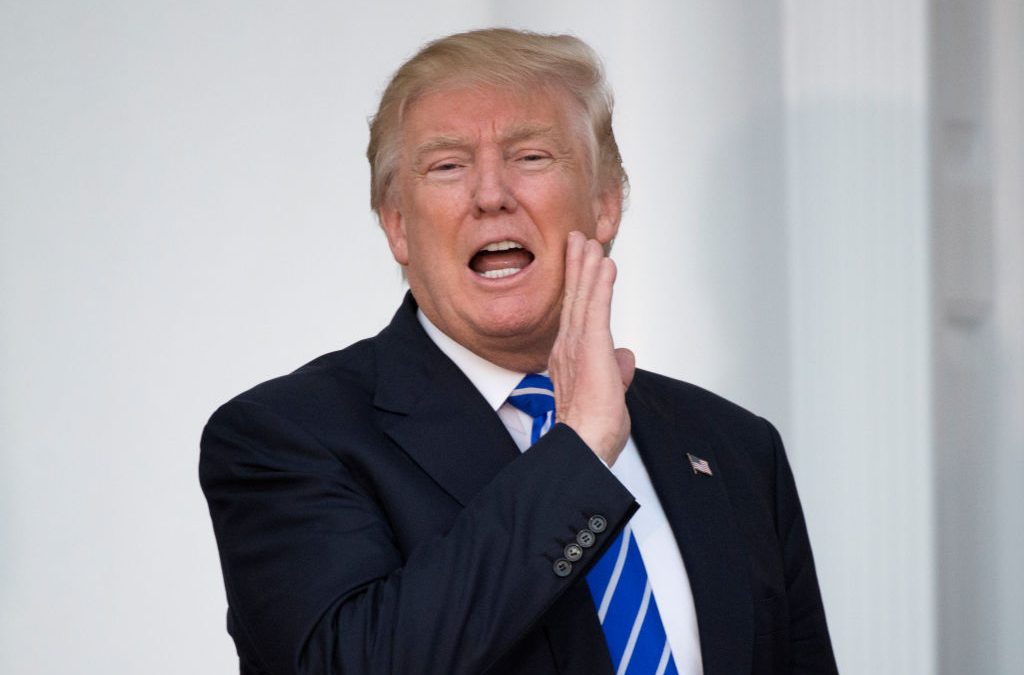Intel just agreed to give the federal government a roughly 10 percent ownership stake. It’s reportedly a common stock deal that binds the federal government to vote with the board unless the board is voting to undermine the deal itself. The deal is a payoff for the CHIPS Act, a $280 billion funding authorization to boost the domestic semiconductor industry. The Biden administration pushed for the funding, Trump pushed for the vig. Theoretically, the equity stake belongs to the government and not Trump personally, but we thought that about Air Qatari One too.
The company needed lawyers to protect its interests in making such a consequential deal, so it turned to… a law firm that agreed to give Trump $100 million in free gifts in exchange for settling an attack on their ability to stay in business. It’s the sort of fact pattern a professional responsibility professor couldn’t put on an exam or they’d be laughed out of the academy: a sophisticated client, a well-heeled firm, and a high-stakes extortion effort.
Trump’s getting flack from some Democrats pointing out that a Republican just went further in seizing the means of production than any fever dream Fox News ever cooked up about Zohran Mamdani. But that assumes the Trump administration is guided by a “coherent economic vision” or “sense of shame.”
To be honest, I’ve always thought deals like this made a lot of sense. The federal government took an ownership stake in GM in exchange for its bailout during the Obama administration. As a consequence, when the manufacturer came back, taxpayers were much better off than when they went in. For all the scare-mongering over socialism, the American economic system already rests on capitalistic gains and socialized losses. Taking an equity stake lets the taxpayers in on the gains too. It also helps avoid “picking winners and losers” if the beneficiaries of government cash have to share a slice of their gains with the public that their better managed competitors don’t.
Frankly, this is how every financially ruinous stadium deal should get handled — if the owner wants a handout for the team, then the investment should pay off directly and not rely on some trickle-down nonsense.
But that doesn’t mean deals should be negotiated by lawyers who recently settled an extortion bid for $100 million with the counterparty.
Intel is not a mom-and-pop cobbler blissfully unaware of its lawyers’ dealings. It’s a sophisticated party that knew Skadden is $100 million in hock to the Trump administration. Indeed, it likely counted on it.
The Trump administration walked up to Intel and said, “nice little funding authorization you got there… shame if something happened to it,” and Intel immediately turned to lawyers who already surrendered to a similar threat for advice. It’s not because they were thoroughly impressed with Skadden’s brilliant negotiation there (if they were impressed by that… then maybe it explains why they needed a bailout). As J.D. Vance, Yale Law’s enduring shame, already proved, Trump doesn’t care what you’ve done to him in the past as long as you’re willing to be obsequious today. Skadden earned a lot of good will with the administration by coughing up pro bono commitments. Good will that Intel would be remiss to pass up.
And Intel is exactly the sort of client the rules trust to make an informed waiver.
While professional responsibility focuses primarily on the client, it’s also — at least somewhat — a matter of protecting public trust in the profession. Just because the client can waive a conflict doesn’t mean it’s good for the legal industry to have firms owing the government still unfulfilled nine-digit settlements while ostensibly negotiating against it. That’s how the public loses its already rock bottom faith in lawyers.
Ideally, ethics rules shouldn’t just exist to keep dumb clients from getting tricked. They should also keep smart clients from normalizing corruption.
Joe Patrice is a senior editor at Above the Law and co-host of Thinking Like A Lawyer. Feel free to email any tips, questions, or comments. Follow him on Twitter or Bluesky if you’re interested in law, politics, and a healthy dose of college sports news. Joe also serves as a Managing Director at RPN Executive Search.
The post Skadden Advises Intel On Trump Deal, Because What Are A Few Obvious Conflicts Among Friends? appeared first on Above the Law.

